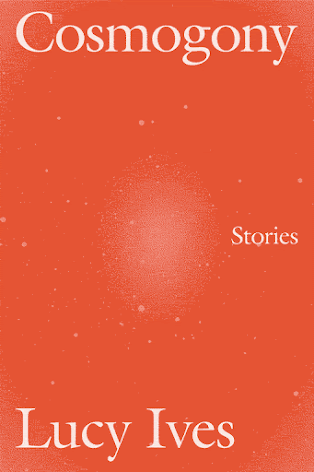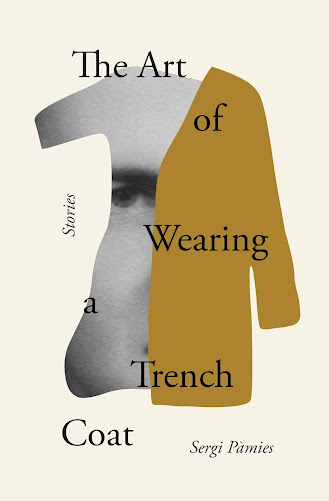As part of our week away in Picton, I attempted to bring as many books of unread prose with me as possible, given the difficulties of reading longer prose during the day-to-day of two small children. As our wee monsters went to the beach with father-in-law and his wife, or spent their afternoons in the pool, I managed to get through short story collections by New York City writer Lucy Ives and Barcelona writer Sergi Pàmies, and sketched a few scattering notes on each. I mean, I wish I could review fiction more often than I currently do, but it is a struggle to get to such since the wee monsters emerged. I know you understand.
I’ve known of Lucy Ives’ work for a while now [see her ’12 or 20 questions’ interview here], having first gone through her poetry collections Orange Roses (Boise ID: Ahsahta Press, 2013) [see my review of such here] and The Worldkillers (Ann Arbor MI: SplitLevel Texts, 2014) [see my review of such here], before reading her prose lyric The Hermit (The Song Cave, 2016) [see my review of such here] and more recent The Saddest Thing Is That I Have Had To Use Words: A Madeline Gins Reader (Catskill NY: Siglio, 2020), a book she edited and compiled around the life’s work of the late Madeline Gins (1941-2014) [see my review of such here]. Her latest work is Cosmogony: Stories (Soft Skull Press, 2021), a collection of twelve short stories that appear, on the surface, at least, traditionally structured. Ives writes first-person narratives on the ways in which we navigate thought and being, social and intimate interactions, but quickly include odd narrative twists, from the conceptual to the speculative, as well as long stretches of contemplation. Her stories wrestle with fundamental questions about our relationships with each other, as well as with the universe. What is our purpose, exactly? What are we meant to be doing?
The most striking and entertaining story in the collection has to be the title story, which begins: “A few years ago a friend of mine married a demon. There was a liberal in the White House then and everyone was feeling pretty sanguine.” She writes of androids, angels and demons, and a woman who lives under the sea, emerging only, it seems, to talk about writing and tennis. She pushes her narratives in unexpected directions and even theoretical asides that simultaneously propel, expand and sit alongside the main thrust of the story, as the title story offers:
Also we’re all supposed to be OK with the notion that we can’t fully know one another. I think about it like this: Leibniz says that the irony of being human is that you’re just like everyone else. You have all the same stuff everyone else has, just in a different order. The reason it is in a different order is that you have some sort of discrete origin, you were born in a time and place, and that, in combination with your embedding among various discrete others/quanta, is what makes you you. This difference is completely arbitrary and the system is designed in this completely infuriating way that makes it impossible to know about it—which is to say, your difference—as a kind of content. Which is why medieval Europeans all look like dolls in their paintings. There wasn’t anything unknowable about them. They were the puppets of god, and they didn’t have psychology or newspapers.
Paris-born “to a family of Spanish political refugees,” and living in Barcelona since 1971, writer, translator and translator Sergi Pàmies is a name entirely new to my attention. The author of a half-dozen short story collections and three novels in Catalan, his latest collection is The Art of Wearing a Trench Coat: Stories (New York NY: Other Press, 2021), translated from the Catalan by Adrian Nathan West, a book that originally appeared as L’art de portar gavardina (Barcelona: Quaderns Crema, 2018). The writing in these thirteen stories are remarkably crisp, and propel through both narrative impulse and lyric detail with an open curiosity, a wry humour and a deep empathy. There is a music to his narratives, one that flows easily and quickly. There is a clarity to his stories exploring narratives on ageing parents, health crises, parenting and simply living in the world as a human attempting to simply be, and remain, human. There is a clarity, but an urgency, and an incredible thickness and complexity to the prose, one that rushes and flows and delights. His stories offer interactions and isolations that occasionally overlap and fold in, before unfurling once more. As he writes in “PATERNITY,” writing his main character attempting to spend time as a divorced parent with his teenaged daughter:
When they meet, Omar again feels an emotion that has evolved since they’ve lived apart. His sense of paternity has been figurative before, linked to details and tangible memories of Amira’s life, as if the sum of the moments they’d been through formed the basis of a growing affection describable in rational terms. This accumulation of lived sequences contained difficulties overcome and assorted scenes selected by memory with chronological arbitrariness (an attack on gastroenteritis, a part in a play, volleyball games with Amira swinging from euphoric self-confidence to vertiginous depression, or a first love with turmoil and a morning-after pill). Since the divorce, Omar has noticed this feeling turning more abstract. It’s no longer about details, situations, or an ensemble of experiences, but an emotional mass he can experience without needing to understand—and even if he wanted to, he couldn’t—each and every one of its ingredients. It’s as if each were confronted with the other’s ignorance, as if they were speaking different languages but still held on to a biological bond on the outer margins of Amira’s reality, where she was oblivious to her father’s opinion or his capacity to intervene. Omar knows he can’t be as stern as he’d like. That he has to stifle his impatience and the sinister ideas that pass through his head, that he must hide his perplexity when such costly tuition produces a student so ill prepared.
The anchor to the collection (the foundation, it would seem, upon which the rest of the collection is built), and the longest story within, is the twenty-nine section “I’M NO ONE TO BE GIVING YOU ADVICE,” a story around the narrator seeking to understand his politically-radical parents, his dreams of youth of a different father, and the weight he brings to the possibility of a trench coat. Turning from point-to-point, the story (which also provides the collection its title) exists as a complex study of multiple characters at the centre of, and far beyond, a period of political turmoil and upheaval. Pàmies writes a first-person story that explores the narrator and his comprehension of his father, and the father’s former compatriot, a political writer the narrator idolized as a youth and wished was, instead, his actual father, before returning to the figure of his mother. How might any of us, really, attempt to understand our youthful dreams and portraits of our parents without realizing it continues to change as we age, even beyond their actual presence? All of this, of course, framed in the history of political chaos and the possibilities of how one might wear a trench coat, whether in the London or Parisian style. As he writes as part sixteen of the story:
In a film about those days, we would mark the passage of time with a sequence showing the pages torn away from a calendar or a sped-up procession of clouds, daybreaks, tides, and sunsets. And, to suggest the political realities, we’d add in archival footage of peaceful and violent demonstrations, silent marches of mournful multitudes against terrorism, and some athletic feat or other. In real life, though, my parents aged with slow dignity, as did Semprún. Apparently my mother saw him again at another conference and admitted—this time without political liabilities, and with the obstinacy of someone determined to maintain her rigor to the end—that she regretted both the docility capital-H History had imposed on them and her own minor episodes of meanness.




No comments:
Post a Comment